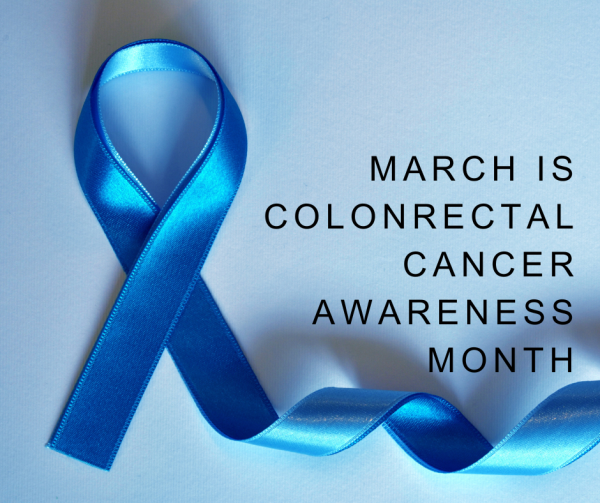Early Detection is Key! 
By: Tracy Reily, MLS, Manager of Quality & Performance
During a recent appointment with my primary care physician (PCP), the doctor informed me that it was time for me to start screening for colorectal cancer (CRC). Due to the rising incidence of early-onset CRC cases, the age for this screening was expanded in 2020 to 45.
I have worked in healthcare for my entire career, so I know and understand the importance of preventive care maintenance. As an everyday person, I was also scared, mainly about the prep and not the procedure itself. Let’s be honest, it does not sound very fun.
After a few months, I reached back out to my PCP and informed her that I was ready to schedule my colonoscopy. The referral process started and an appointment with a GI specialist was scheduled.
On the day of my consultation, I went in with a list of my questions and concerns. My GI provider went through my family and personal health history, which is vital. She was very thorough on the various preps and shared her recommendations with me, in addition, reviewed what would transpire on the day of the procedure. She called in my script for the prep to the pharmacy and informed me that their scheduling department would call me to schedule the procedure. Within a couple of days, the scheduler called me and had appointments available for the following week. I will not lie; I was slightly hesitant to do it that quickly. We settled on a date for a few weeks later. It gave me time to get the prep and all the other essentials that I would need for the day before (i.e., Italian ice, etc.), and prepare myself mentally for the procedure.
The day before my procedure, I started the prep during the mid-afternoon. The effects of the prep kicked in later that night. In retrospect, it wasn’t as bad as I had feared it would be.
On the day of my colonoscopy, the nurse and the anesthesiologist did their pre-procedure work. Lastly, my GI doctor walked me through what he would be doing. The colonoscopy was simple and painless. My doctor reviewed my results, informed me that everything was normal—which prompted a sigh of relief–and informed me that, based on the current guidelines, I did not need another colonoscopy for another 10 years.
It is imperative that once you hit the minimum age of 45, you should have a discussion with your PCP about the options for CRC screening. While colonoscopy is considered the gold standard for CRC screening, several alternative, non-invasive methods like stool DNA tests (Cologuard) and fecal occult blood tests (FOBT) are currently available, with more coming on the horizon.
At the end of the day, many people do not want to undergo a colonoscopy, but the best screening test is the one that gets done.
On another note, new cases of colorectal cancer under 50 (coined early-onset colorectal cancer) have been rising at an alarming rate over the past decades. It is now the leading cause of death in males under 50; in females under 50, it trails only breast cancer.
The hidden and silent nature of the early progression of this disease is deadly, as it results in people having higher stages of the disease when diagnosed. It is well established that mortality rates are lower in people with lower-stage disease.
Given the fact that younger people typically are not screened, they need to be particularly attentive to some warning signs that may be heralding the presence of early-onset CRC.
A study published by the National Cancer Institute in May 2023 identified four warning signs that were more commonly reported in people who developed CRC:
- Abdominal pain
- Rectal bleeding
- Diarrhea
- Iron deficiency anemia
When a younger adult notices these warning signs, they should contact their primary care physician, and, if their symptoms continue, be persistent about having an evaluation.
Talk openly and directly with your provider. Early detection is crucial for improving the chance of survival.